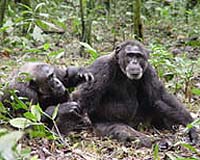| . |  |
. |
Santa Fe AZ (SPX) Nov 04, 2009 A new study reveals the important role inherited wealth plays in sustaining economic inequality in small scale societies. A team of 26 anthropologists, statisticians, and economists based at the Santa Fe Institute in New Mexico amassed an unprecedented data set allowing 43 estimates of a family's wealth inheritance and found that financial inequality among populations largely depends on the "technologies" that produce a people's livelihood. According to the report, released in the October 30 edition of the journal Science, technologies differ across societies. Technologies are defined here to include everything one needs to make a living--from material things such as farms, herds and other real property, to knowledge, skills and other valuable resources. Hunter-gatherers, for example, rely on their wits, social connections and strength to make a living. In these economies, wealth inheritance is modest because wits and social connections can be transferred only to a certain degree. The level of economic inequality in hunter-gatherer societies is on a par with the most egalitarian modern democratic economies. Coordinated by Monique Borgerhoff Mulder, an evolutionary anthropologist at the University of California at Davis and Samuel Bowles, an economist at the Santa Fe Institute, researchers analyzed the degree of wealth inequality in small scale societies ranging from egalitarian hunter gatherers to hierarchical farmers and herders in Africa, Asia, Europe and Latin America. In one of their more remarkable findings, the researchers note that offspring in the top ten percent of the wealthiest families in farming populations are 11 times more likely to retain a high wealth status than the offspring of the poorest tenth. Among herders, the rich-born are more than 20 times more likely than the poor-born to attain high status. The researchers reason that in these communities, wealth takes the form of readily inherited materials, livestock and land. "These societies exhibit levels of wealth inheritance and of inequality rivaling the most unequal national economies in the world today," said Mulder. In hunter gatherer societies, by contrast, the children of the wealthiest--those with the most hunting skills for example--have only a three to one advantage in getting ahead, compared to the children of the least wealthy. The authors note that wealth in the emergent knowledge-based economy of today in some ways resembles that of hunter-gatherers in that its characteristic forms of wealth -skill and social connections--are less readily passed from parent to child than, say, a factory or plantation. But this does not mean that the new information-driven Internet Age will necessarily assure less inequality. "While the form of wealth--whether it is easily inherited like material wealth or not--is an important determinant of the extent of intergenerational wealth inheritance and the level of resulting economic inequality, we also found that a given society's institutions and norms make a big difference," said Bowles. Share This Article With Planet Earth
Related Links Santa Fe Institute in New Mexico National Science Foundation All About Human Beings and How We Got To Be Here
 New Evidence Of Culture In Wild Chimpanzees
New Evidence Of Culture In Wild ChimpanzeesFife, UK (SPX) Oct 28, 2009 A new study of chimpanzees living in the wild adds to evidence that our closest primate relatives have cultural differences, too. The study, reported online in Current Biology, a Cell Press publication, shows that neighboring chimpanzee populations in Uganda use different tools to solve a novel problem: extracting honey trapped within a fallen log. Kibale Forest chimpanzees use sticks to ... read more |
|
| The content herein, unless otherwise known to be public domain, are Copyright 1995-2009 - SpaceDaily. AFP and UPI Wire Stories are copyright Agence France-Presse and United Press International. ESA Portal Reports are copyright European Space Agency. All NASA sourced material is public domain. Additional copyrights may apply in whole or part to other bona fide parties. Advertising does not imply endorsement,agreement or approval of any opinions, statements or information provided by SpaceDaily on any Web page published or hosted by SpaceDaily. Privacy Statement |